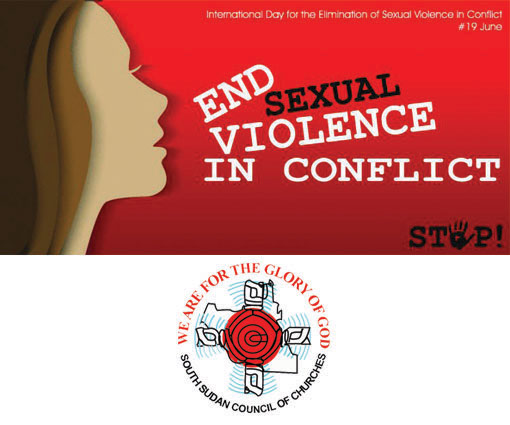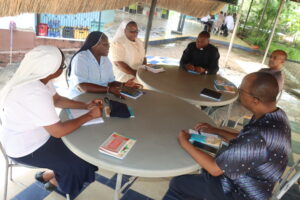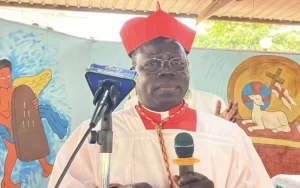SOUTH SUDAN: Church Leaders Condemn Conflict-related Sexual Violence

Sr. Jecinter Antoinette Okoth, FSSA
On the occasion commemorating International Day for Elimination of Sexual Violence in Conflict, to raise awareness of the need to put an end to conflict-related sexual violence, South Sudan Council of Churches (SSCC) has underlined respect of human life among other concerns.
“The sacredness of human life, the inherent dignity of every human being as well as their physical and mental integrity as reflected in the teachings and values of the Christian faith,” has been emphasized as a concern by Church leaders in their statement dated Friday, June 19.
As they “welcome commitments made by parties to the conflict in South Sudan, the Church leaders have appealed to “all to refrain from acts of sexual and gender-based violence in line with international human rights and humanitarian law.”
In their collective statement, members of the council have noted that, “despite formal commitments, parties to the conflict in South Sudan continue to target women, girls, men and boys with acts of sexual violence as an infamous tool to harm, humiliate, displace and stigmatize the civilian population undermining social cohesion.”
They have raised concerns over the “increased use of sexual violence by local communities, armed youth and militias in various parts of the country including Jonglei, Warrap, Western Bahr El Ghazal and the greater Equatorial Region” and highlighted the “indelible suffering that sexual violence can inflict on victims, their families and communities such as chronic injuries, mental disorders, isolation, anger and loss of livelihoods.”
The eight representatives of various churches including Archbishop Stephen Ameyu Martin of Juba Archdiocese who signed the statement, “Urge community leaders, armed youth and local militias to return abducted women and children to their respective communities without delay and refrain from using sexual violence to settle localized disputes.”
They “Appeal to religious leaders of all faiths to promote social cohesion among their followers and dialogue initiative to peacefully address any disagreement.”
The council strongly denounced “conflict-related sexual violence,” and commended “the survivors, both men and women, for their strength in speaking up against sexual violence defying a culture of stigma and fears of retaliation.”
The church leaders also recommended “community dialogues and conversation to address gender-based discrimination which underlies sexual violence and reverse the stigma from the victim to the perpetrator,” and have “pledge support to ongoing efforts to end conflict-related sexual violence including through spiritual and material support to survivors according to resources available.”




